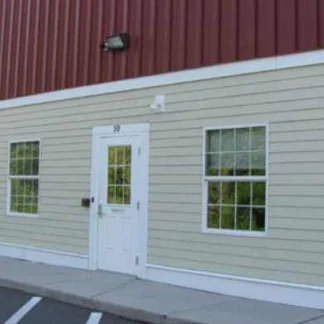Giannas House
Giannas House is an inpatient rehab located in Brockton , MA. Giannas House spec...
High Point–Men’s Addiction Treatment Center (MATC), in Brockton, Massachusetts, is a Section 35 drug and alcohol rehab for adult men. They specialize in intervention services, medically supervised detox, clinical stabilization, intensive inpatient care, and aftercare and transitional support for clients who have been civilly committed. Dedicated programs for dual diagnosis clients, young adults, and persons living with HIV/AIDS are available.
High Point–Men’s Addiction Treatment Center (MATC) is a Section 35 treatment facility for adult men who have been civilly committed. They provide intervention services, medically supervised detox, clinical stabilization, intensive inpatient care, and aftercare support from their Brockton, Massachusetts campus. They also specialize in treating young adults, clients with co-occurring mental health disorders, and persons living with HIV/AIDS.
The experienced clinicians at MATC offer comprehensive medical support, including round the clock supervision and care for clients withdrawing from drugs and alcohol. FDA approved medications may be prescribed to ease withdrawal symptoms, prevent potentially life threatening complications, and stabilize clients in crisis.
The intensive inpatient program at MATC is designed to enable clients to focus solely on their recovery, safe from addiction triggers and the distractions of the outside world. They offer a highly structured and supportive environment to enable civilly committed clients to begin learning about addiction, exploring the roots and ramifications of their disease, and developing essential life skills to support sobriety. Clients in inpatient care attend multiple 12 step focused therapy sessions daily, including a combination of individual, group, and family counseling. In addition, clients participate in a range of recovery focused education programs relating to coping, anger and stress management, problem solving, wellness, self care, relapse prevention, and community and family reintegration.
MATC ensures a robust continuum of care to facilitate sustained sobriety. Aftercare planning and support include transitional services for clients entering sober living or outpatient programs.
MATC is accredited by the Joint Commission and SAMHSA. They accept private insurance, self pay, Medicare, Medicaid, and military insurance. Need based financial assistance and sliding scale payment plans are available.
Contact us for more information: (508) 742-4400

Connect with High Point - Men's Addiction Treatment Center - MATC by calling their admissions team directly.
(508) 742-4400 Website Get DirectionsThe Joint Commission, formerly known as JCAHO, is a nonprofit organization that accredits rehab organizations and programs. Founded in 1951, the Joint Commision's mission is to improve the quality of patient care and demonstrating the quality of patient care.
Joint Commission Accreditation: Yes
The Substance Abuse and Mental Health Services Administration (SAMHSA) is a branch of the U.S. Department of Health and Human Services. Established in 1992 by congress, SAMHSA's mission is to reduce the impact of substance abuse and mental illness on American's communities.
SAMHSA Listed: Yes
Research clearly demonstrates that recovery is far more successful and sustainable when loved ones like family members participate in rehab and substance abuse treatment. Genetic factors may be at play when it comes to drug and alcohol addiction, as well as mental health issues. Family dynamics often play a critical role in addiction triggers, and if properly educated, family members can be a strong source of support when it comes to rehabilitation.
Group therapy is any therapeutic work that happens in a group (not one-on-one). There are a number of different group therapy modalities, including support groups, experiential therapy, psycho-education, and more. Group therapy involves treatment as well as processing interaction between group members.
In individual therapy, a patient meets one-on-one with a trained psychologist or counselor. Therapy is a pivotal part of effective substance abuse treatment, as it often covers root causes of addiction, including challenges faced by the patient in their social, family, and work/school life.
Nutrition therapy, aka medical nutrition therapy (MNT), is a way of treating physical, emotional, and medical conditions through diet. Specific dietary plans are designed by professional nutritionists or registered dietitians, and patients follow them in order to positively affect their physical and mental health.
Group therapy is any therapeutic work that happens in a group (not one-on-one). There are a number of different group therapy modalities, including support groups, experiential therapy, psycho-education, and more. Group therapy involves treatment as well as processing interaction between group members.
In individual therapy, a patient meets one-on-one with a trained psychologist or counselor. Therapy is a pivotal part of effective substance abuse treatment, as it often covers root causes of addiction, including challenges faced by the patient in their social, family, and work/school life.
Nutrition therapy, aka medical nutrition therapy (MNT), is a way of treating physical, emotional, and medical conditions through diet. Specific dietary plans are designed by professional nutritionists or registered dietitians, and patients follow them in order to positively affect their physical and mental health.
In individual therapy, a patient meets one-on-one with a trained psychologist or counselor. Therapy is a pivotal part of effective substance abuse treatment, as it often covers root causes of addiction, including challenges faced by the patient in their social, family, and work/school life.
Nutrition therapy, aka medical nutrition therapy (MNT), is a way of treating physical, emotional, and medical conditions through diet. Specific dietary plans are designed by professional nutritionists or registered dietitians, and patients follow them in order to positively affect their physical and mental health.
Nutrition therapy, aka medical nutrition therapy (MNT), is a way of treating physical, emotional, and medical conditions through diet. Specific dietary plans are designed by professional nutritionists or registered dietitians, and patients follow them in order to positively affect their physical and mental health.
Giannas House is an inpatient rehab located in Brockton , MA. Giannas House spec...
Teen Challenge New England & New Jersey operates as a faith-based rehabilita...
Brook Recovery Centers is a CARF-accredited substance abuse rehab in Abington, M...
Secon of New England is a private rehab located in Brockton, Massachusetts. Seco...